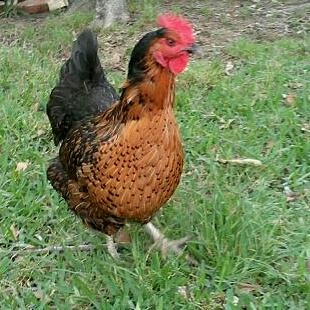dandelionchick
Leafing Out
- Joined
- Nov 4, 2013
- Messages
- 34
- Reaction score
- 0
- Points
- 16
OMG! This thread is so funny. I watch this go on in my own house all the time! My DD is a chicken girl, now 22 y/o, I bought her chicks when she was little for Easter. I THOUGHT I was buying them for myself. I thought she'd grow tired of them and then they'd be mine.  I never had to take care of those chickens unless she went out of town! She still has her chickie babies! They are addicting aren't they?
I never had to take care of those chickens unless she went out of town! She still has her chickie babies! They are addicting aren't they?  I still get to enjoy them, I collect pest and goodies from the garden to take to her chickens. They love to see me coming! LOL
I still get to enjoy them, I collect pest and goodies from the garden to take to her chickens. They love to see me coming! LOL
 I never had to take care of those chickens unless she went out of town! She still has her chickie babies! They are addicting aren't they?
I never had to take care of those chickens unless she went out of town! She still has her chickie babies! They are addicting aren't they? 


 currently maintaining ongoing chicken project. Just processed 2nd batch of roosters.....we are so new to this. Found out our Plymouth Rocks don't go broody, so we are left with one game hen to hold up the broody section. Till we can grow some more from her mixes. Therefore....more 50/50 split. We've done terrible on pullet/cockerel ratio though. Out of 2 hatches this past summer.....4 pullets......8 cockerels now in freezer camp.
currently maintaining ongoing chicken project. Just processed 2nd batch of roosters.....we are so new to this. Found out our Plymouth Rocks don't go broody, so we are left with one game hen to hold up the broody section. Till we can grow some more from her mixes. Therefore....more 50/50 split. We've done terrible on pullet/cockerel ratio though. Out of 2 hatches this past summer.....4 pullets......8 cockerels now in freezer camp.  We are trying to do dual purpose, but that still involves lots of chicken learnin'. And more chicken coop/pen building. and more processing.....
We are trying to do dual purpose, but that still involves lots of chicken learnin'. And more chicken coop/pen building. and more processing..... 